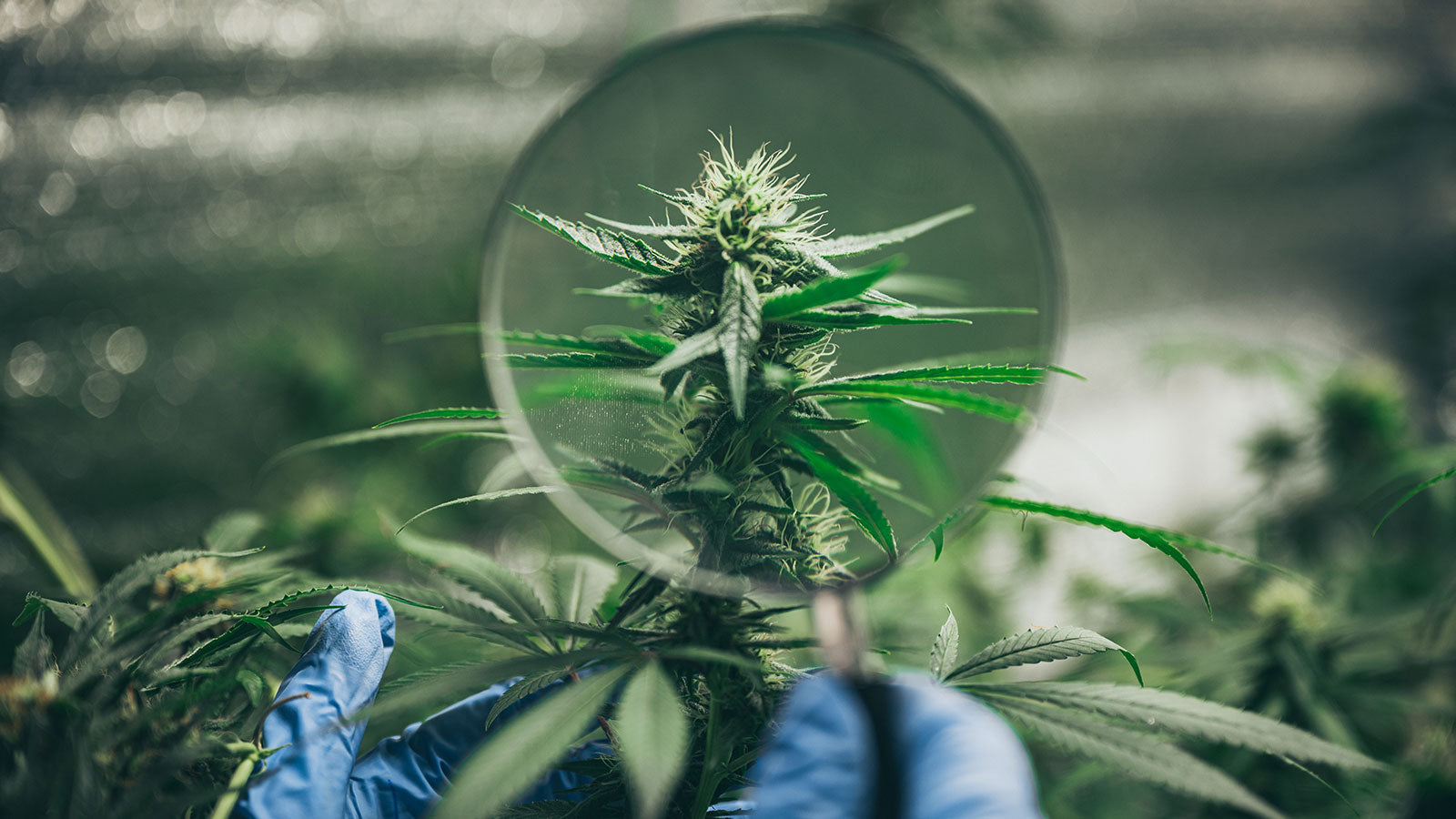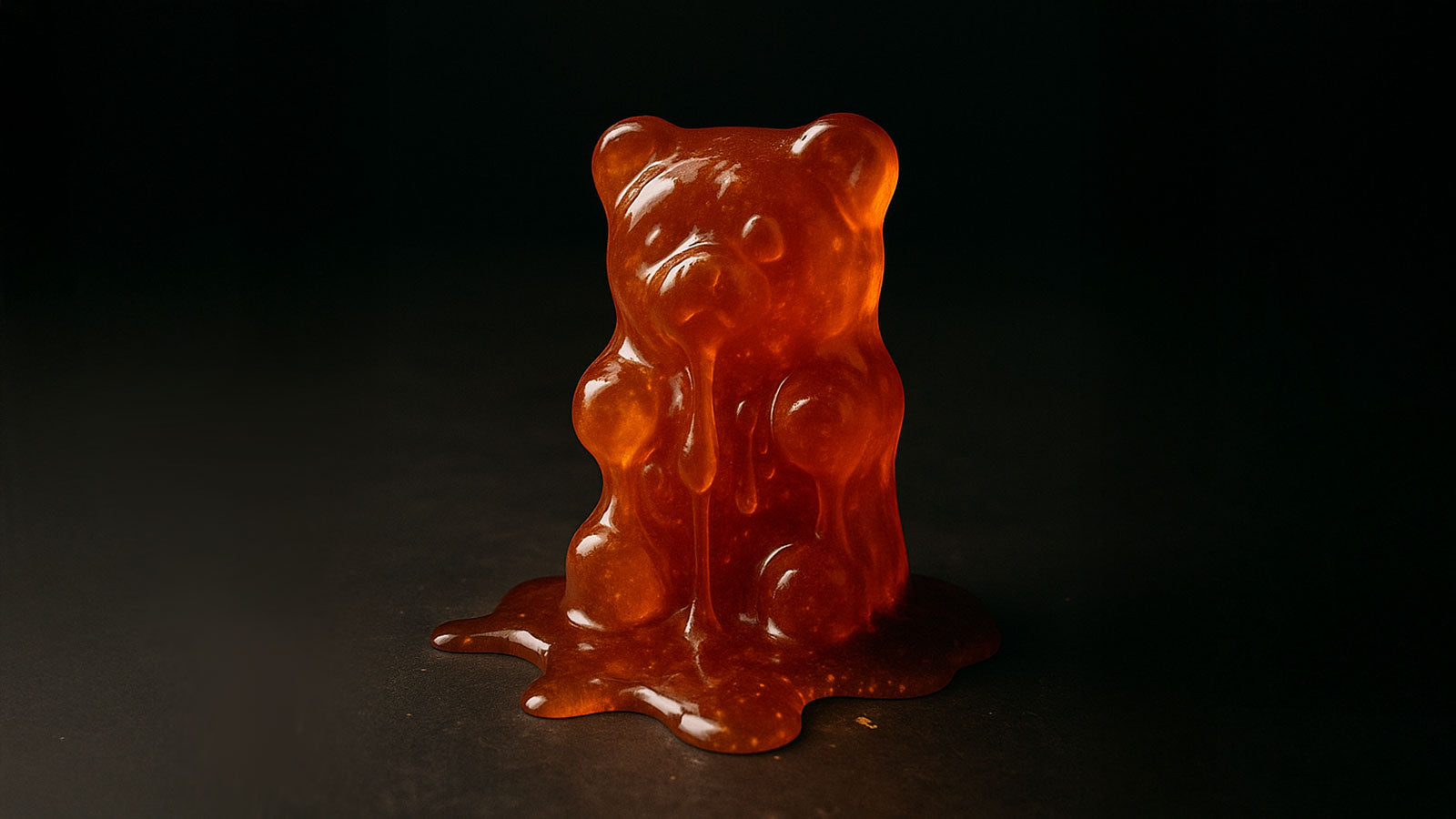THC
Why We Use It
Hemp-derived detla-9 THC, or tetrahydrocannabinolis known for its potential to improve focus, energy, and overall flow, making it useful for improved performance is both hard-core athletes as well as the weekend warrior. Microdosing can also aid in pain relief and recovery, promoting physical well-being.
Key Performance Attributes
Focus
Creativity
Mood
Motivation
Formulas used In
Research Highlights
Low-dose THC for Athletic Performance
“Cannabis and Athletic Performance” — Sports Medicine (2021)
This article suggests THC may support recovery by acting as a natural pain reliever and reducing inflammation, which could help you manage discomfort after intense workouts. It also shows promise in promoting sleep and easing anxiety, both of which are critical for restoring your body and mind. While it doesn’t directly enhance strength, endurance, or speed—and higher doses might even hinder coordination—these recovery benefits could make a real difference in how you feel day-to-day. Scientists note that more studies are needed to confirm these effects, but THC could be a useful tool for staying on top of your game when used carefully.
Key Takeaways:
- Pain Management: THC’s analgesic properties may reduce post-exercise soreness.
- Sleep Support: It can improve sleep onset, aiding physical recovery.
- Anxiety Reduction: Lower stress levels could enhance mental well-being.
- Recovery Emphasis: THC targets recovery rather than performance, offering practical benefits with mindful use.
[Source]
The Effect of THC on Mood and Recovery
"Cannabis and Mood Disorders: A Systematic Review” — Frontiers in Public Health (2024)
This article sheds light on THC’s potential benefits to lift your mood and recover from emotional challenges. Research shows that low doses of THC may help ease depressive feelings and stabilize your mood by working with your body’s endocannabinoid system, which plays a key role in emotional balance. It can also reduce stress and anxiety, offering a calmer state of mind that supports recovery from mood struggles like depression or bipolar disorder. On top of that, THC might improve sleep quality—a big win for mental resilience and feeling refreshed. While the science is still growing, these findings suggest THC, when used carefully, could be a helpful ally for your emotional well-being and recovery journey.
Key Takeaways:
- Mood Lift: Low-dose THC may lessen depressive symptoms, giving your emotions a gentle boost.
- Stress Relief: Its calming effects can lower anxiety, aiding emotional recovery.
- Sleep Aid: Better sleep from THC supports mental and physical restoration.
- Targeted Benefits: The positives shine at low doses, making it a promising option with cautious use.
[Source]
Enhancing Focus and the Creative Process with THC
“The Real Dope on Cannabis and Creativity” — Psychology Today (2025)
This article explains that low to moderate doses of THC might help you think more freely and come up with fresh ideas by tapping into your brain’s endocannabinoid system, which can dial down overthinking and boost what’s called divergent thinking. Many users say they feel more inspired and less stuck when using it, and science backs this up a bit—studies suggest it can make you feel happier and more open, which could fuel your creative flow. While it’s not a guaranteed creativity superpower (and too much can cloud your mind), these findings hint that a little THC could be a fun, useful tool for brainstorming or breaking through mental blocks when used thoughtfully.
Key Takeaways:
- Idea Boost: Low-dose THC may spark more ideas by loosening up your thinking.
- Creative Freedom: It can reduce mental barriers, helping you feel more inventive.
- Mood Lift: A happier, lighter mood from THC might inspire your creative side.
- Smart Use: The benefits work best at lower doses, offering a creative edge without the fog.
[Source]
THC-V
Why We Use It
THC-V, or tetrahydrocannabivarin, is known for enhancing performance. THC-V can help athletes, and those seeking to improve physical endurance and mental clarity maintain focus and energy.
Key Performance Attributes
Performance
Energy
Metabolism
Formulas used In
Research Highlights
Optimization for Athletic Performance
"Cannabinoids and Inflammasomes: Potential Role of THCV in Reducing Inflammation” — Cannabis and Cannabinoid Research (2022)
This article focuses on THCV’s anti-inflammatory and metabolic properties, which directly tie into athletic performance aspects like endurance and recovery. THCV helps keep your head clear at low doses and might ramp up energy by tweaking how your body handles fuel—think more stamina for those long runs or tough lifts. It’s also shown to dial down inflammation, which could mean less soreness and faster recovery after a hard workout. While the science is still unfolding, THCV’s potential to keep you energized and bouncing back quicker makes it worth watching for anyone serious about their game.
Key Takeaways:
- Energy Surge: THCV may enhance energy use, helping you push harder during exercise.
- Inflammation Fighter: Its anti-inflammatory effects could cut down recovery time.
- Clear Focus: Non-psychoactive at low doses, it supports performance without the haze.
- Science in Motion: Early research is promising, but more studies will solidify its athletic benefits
[Source]
Energy Regulation and Metabolism
"Tetrahydrocannabivarin (THCV) Protects Adipose-Derived Mesenchymal Stem Cells (ASC) against Endoplasmic Reticulum Stress Development and Reduces Inflammation” — International Journal of Molecular Sciences (2023)
This article focuses on THCV’s role in energy homeostasis and metabolic health, specifically through its protective effects on adipose tissue under stress. These benefits—improved energy regulation and reduced inflammation—directly tie into athletic performance by supporting sustained effort and faster recovery. THCV supports your body’s energy balance by protecting fat cells from stress and boosting metabolism, which could mean more power for your workouts. It also fights inflammation, helping you feel less worn out after pushing hard. While it’s early days for research, THCV’s ability to keep your cells healthy and humming could give you a natural edge in training and bouncing back.
Key Takeaways:
- Energy Support: THCV helps maintain energy balance by protecting cells involved in metabolism.
- Inflammation Relief: It reduces inflammation, potentially easing post-exercise fatigue.
- Metabolic Boost: Enhanced fat cell function could improve stamina and recovery.
- Future Potential: Promising early findings suggest THCV might be a performance enhancer with more study.
[Source]
Impact on Appetite and Cravings
Δ9-Tetrahydrocannabivarin (THCV): A Commentary on Potential Therapeutic Benefit for the Management of Obesity and Diabetes” — Journal of Cannabis Research (2020)
This article emphasizes THCV’s unique ability to suppress appetite and enhance satiety, contrasting it with THC’s hunger-inducing effects. The studies it reviews provide a strong foundation for its potential as a diet aid, focusing on how it interacts with the endocannabinoid system to regulate food intake. As THCV tweaks your body’s energy system, it might keep cravings in check and support weight control, all without the high at low doses. While the research is new, THCV’s knack for regulating hunger could make it a smart, natural choice for anyone looking to lighten up their eating habits.
Key Takeaways:
- Appetite Control: THCV reduces hunger and increases satiety, helping you avoid overeating.
- Craving Buster: It may dial down the urge for snacks by balancing your energy metabolism.
- Weight Support: Early studies suggest it’s a promising tool for managing obesity.
- Clear-Headed Help: Non-psychoactive at low doses, it offers benefits without the buzz.
[Source]
CBG
Why We Use It
CBG, or cannabigerol, is known for its potential to help reduce inflammation, alleviate pain, and support digestive health. CBG is also being studied for its neuroprotective properties and its ability to promote appetite. Users often turn to CBG for its calming effects and potential to enhance mood and focus.
Key Performance Attributes
Focus
Creativity
Pain
Anxiety
Recovery
Formulas used In
Research Highlights
Potential Cognitive Effects of CBG
"Acute Effects of Cannabigerol on Anxiety, Stress, and Mood” — Scientific Reports (2024)
This study directly investigates CBG’s acute effects on anxiety, stress, and memory in humans. In recent trials, CBG slashed anxiety by over 26% and cut stress levels compared to a placebo, leaving people feeling calmer within an hour. Even better, it boosted memory—participants recalled more words after taking CBG, a surprise bonus that could help you stay sharp.
Key Takeaways:
- Anxiety Drop: CBG quickly lowers anxiety, helping you feel more relaxed.
- Memory Boost: It enhances word recall, potentially sharpening your mental edge.
- Stress Relief: Reduced stress levels could support a calmer, happier you.
- No Haze: Non-psychoactive, it delivers benefits without clouding your thoughts.
[Source]
CBG for Performance & Flow
Pharmacological Aspects and Biological Effects of Cannabigerol and Its Synthetic Derivatives — Evidence-Based Complementary and Alternative Medicine (2022)
This article provides a detailed review of cannabigerol (CBG), a non-psychoactive cannabinoid from Cannabis sativa, and its potential biological effects that could benefit athletes. The research highlights CBG’s interaction with the endocannabinoid system, specifically as a partial agonist at CB1 and CB2 receptors, which may help reduce inflammation and pain—key factors in athletic recovery and performance. Unlike THC, CBG doesn’t cause a high, making it a promising option for those seeking relief without psychoactive effects. The study also notes CBG’s ability to boost anandamide levels (the “bliss molecule”), which could enhance focus and motivation during training. While direct evidence tying CBG to athletic performance is still limited, its anti-inflammatory, analgesic, and neuroprotective properties suggest it could aid in faster recovery and sustained physical effort.
Key Takeaways:
- Anti-Inflammatory Action: CBG’s interaction with CB2 receptors may reduce inflammation, potentially helping athletes recover faster from muscle strain or injury.
- Pain Relief: As a partial agonist at cannabinoid receptors, CBG shows promise in easing pain, which could support athletes in managing discomfort from intense workouts.
- Mental Edge: By increasing anandamide, CBG might improve focus and motivation, offering a psychological boost during competition or training.
[Source]
Therapeutic Potential of CBG
Cannabigerol (CBG): A Comprehensive Review of Its Molecular Mechanisms and Therapeutic Potential — Molecules (2024)
This article dives into the science behind cannabigerol (CBG), a lesser-known cannabinoid from the cannabis plant that doesn’t get you high like THC. It explains how CBG interacts with the body’s endocannabinoid system and other pathways to potentially ease a variety of health issues. The research highlights CBG’s ability to fight inflammation, reduce pain, protect brain cells, and even tackle cancer cells, all while being safe and non-intoxicating. For the average person, this means CBG could be a natural option for managing conditions like chronic pain or anxiety without the foggy feeling of some drugs.
Key Takeaways:
- Wide-Ranging Benefits: CBG shows promise in reducing inflammation, easing pain, and protecting against brain degeneration, making it a potential multitasker for health.
- Non-Psychoactive: CBG won’t alter your mind, offering a clear-headed option for therapeutic use.
- Molecular Action: It works by tweaking receptors like CB1, CB2, and others, plus boosting natural compounds like anandamide, which could help with mood and pain.
[Source]
CBC
Why We Use It
CBC, or cannabichromene, is known for reducing inflammation, alleviating pain, and supporting mood enhancement.. Many users turn to CBC for its potential to enhance overall well-being, particularly in combination with other cannabinoids in the "entourage effect."
Key Performance Attributes
Inflammation
Pain
Mood
Recovery
Formulas used In
Research Highlights
Effects of CBC on Inflammation
In Vitro and In Vivo Anti-Inflammatory Potential of Cannabichromene Isolated from Hemp — Antioxidants (2023)
This study explores how cannabichromene (CBC), a non-psychoactive cannabinoid fights inflammation, which could be a game-changer for people dealing with swelling or pain from various conditions. Researchers purified CBC and tested it in lab-grown immune cells and mice with induced inflammation. They found that CBC significantly dialed down inflammation markers—like nitric oxide and cytokines—at safe doses, without harming cells.
Key Takeaways:
- Potent Inflammation Fighter: CBC cut nitric oxide production by about 50% at 20 μM in immune cells and lowered pro-inflammatory cytokines like IL-1β and IL-6 in both lab and animal tests.
- Safe at Tested Doses: No toxic effects were seen up to 20 μM in cells, suggesting CBC could be a low-risk option for inflammation relief.
- Mechanism Insight: It likely works by quieting the NF-kB and MAPK pathways, which are big players in driving inflammation, though more studies are needed to nail this down.
- Real-World Effect: In mice, CBC reversed inflammation triggered by λ-carrageenan, hinting at its practical use for conditions involving swelling or irritation.
[Source]
The Potential of CBC as a Therapeutic Agent
The Potential of Cannabichromene (CBC) as a Therapeutic Agent — Journal of Pharmacology and Experimental Therapeutics (2024)
This review article digs into the growing interest in cannabichromene (CBC), a lesser-known cannabinoid with potential to help with pain, inflammation, bacterial infections, and seizures, based on its unique interactions with the body’s systems. Unlike CBD and THC, which are already used in approved treatments, CBC stands out for its distinct chemical makeup and effects, hinting at untapped health benefits. The authors make it clear that while early studies are promising—showing CBC could ease discomfort or fight off germs and suggesting that CBC might one day offer a natural, non-intoxicating option for managing tough health issues.
Key Takeaways:
- Diverse Benefits: CBC shows early promise for reducing pain, inflammation, and seizures, and even fighting bacteria, setting it apart from more studied cannabinoids.
- Non-Psychoactive: Like CBD, CBC won’t get you high, making it a potential choice for those seeking relief without mental cloudiness.
- Unique Action: It interacts differently with the body’s receptors compared to THC and CBD, which could lead to new ways of tackling health problems.
[Source]
Benefits of Minor Cannabinoids and CBC
Plant-derived natural therapeutics targeting cannabinoid receptors in metabolic syndrome and its complications — Science Direct (2010)
This article provides a summary of major and minor cannabinoids and how they interact with the endocannabinoid system (ECS). The ECS plays an important role in regulating and optimizing critical functions. CBC is the second most to produce anti-nociception and anti-inflammatory effects in animals and is one of the most abundant phytocannabinoids. Recent reports showed it’s potential antimicrobial, anti-inflammatory, analgesic and anti-depressant like activity.
[Source]
CBD
Why We Use It
CBD, or cannabidiol, is known for its potential to alleviate anxiety, reduce inflammation, and relieve chronic pain without the psychoactive effects associated with THC. Many people use CBD to manage stress, improve sleep quality, and support overall mental clarity.
Key Performance Attributes
Pain
Inflammation
Anxiety
Recovery
Formulas used In
Research Highlights
Benefits of CBD for Pain Management
Cannabidiol in Sports: insights on how CBD could improve performance and recovery — Frontiers (2023)
This article explores how CBD interacts with the body to potentially enhance sports performance and recovery, with a strong focus on its pain management capabilities. It discusses CBD’s ability to interfere with neuronal communication, reducing the perception of pain by inhibiting neurotransmitter activity. The authors highlight evidence from studies showing CBD’s effectiveness in managing both chronic and acute pain.
Key Takeaways:
- Pain Management: CBD may reduce pain perception by altering neurotransmitter activity, offering a natural pain management option.
[Source]
CBD for Athletic Performance
Cannabidiol and Sports Performance: a Narrative Review of Relevant Evidence — Sports Medicine (2020)
This article reviews CBD’s physiological and psychological effects that could benefit athletic performance, such as its anti-inflammatory, neuroprotective, and anxiolytic properties. It discusses preclinical studies showing CBD’s potential to reduce inflammation and promote skeletal injury healing, alongside early clinical evidence suggesting it may lower anxiety during stress-inducing situations like competitions. While direct studies on sports performance are lacking, the review suggests CBD could enhance recovery and mental focus, urging further research in athlete populations.
Key Takeaways:
- Mind & Body: CBD’s anti-inflammatory and neuroprotective effects may support physical performance and injury recovery.
- Clarity: Its anxiolytic properties could enhance mental clarity and focus during athletic events.
- Safe and Well-tolerated: this makes CBD a viable option for athletes
[Source]
Wellness Benefits of CBD
Cannabidiol as a Potential Treatment for Anxiety and Mood Disorders — International Journal of Molecular Sciences (2021)
This article explores CBD’s potential as a treatment for anxiety and mood disorders, with implications for health and wellness that extend to fitness and recovery. It synthesizes preclinical evidence showing CBD’s anxiolytic effects via interactions with serotonin receptors (5-HT1A) and its modulation of the endocannabinoid system, which can reduce stress and inflammation—key factors in post-exercise recovery. The study also discusses CBD’s ability to improve sleep and mitigate stress-induced physiological responses, such as elevated cortisol, which can enhance overall well-being and support physical recuperation in active individuals. While not a direct human trial, it provides a strong scientific foundation for CBD’s wellness benefits.
Key Takeaways:
- Mental & Physical Benefits: CBD’s interaction with 5-HT1A receptors reduces anxiety, which can improve mental resilience and recovery after physical exertion.
- Fights Inflammation: Its anti-inflammatory properties and stress reduction (via lower cortisol) support muscle recovery and overall wellness.
- Improves Sleep: Preclinical data suggest CBD enhances sleep quality, a critical component of fitness recovery.
- Non Psychoactive: The review underscores CBD’s potential as a safe, non-psychoactive option for promoting health and managing exercise-related stress
[Source]
THC & Me
Additional microdosing and cannabinoid resources.
Federal Hemp Legality & THC Reform
Learn how upcoming federal hemp legality changes and THC regulations could impact products, state programs, and the future of the hemp market.
Crushing the Day - An interview with Courtside Les
Tennis pro Les discusses how she leverages microdosing to transition through her packed days to grind through the noise.
5 Reasons Why THC Gummies Suck
When we set out to create ATHLETHC, we wanted to create a microdose THC edible which lifts you up, not brings you down. Here's 5 reasons why we think gummies suck and why we chose to make mints.



